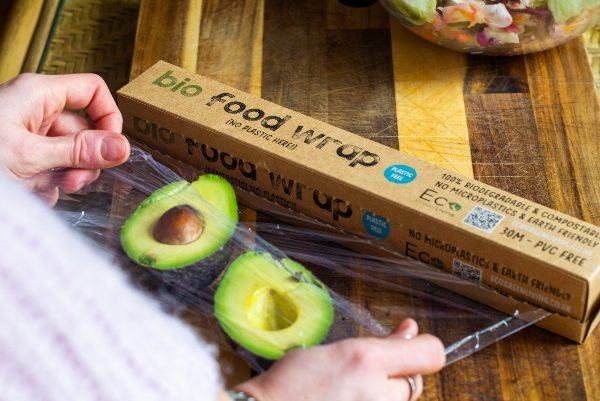Certified compostable
A biodegradable material will break down under the action of micro-organisms but can leave residues after one composting cycle and no guarantee for toxic residues can be given.
This means a biodegradable material cannot automatically be considered to be compostable before proof of its compostability has been given according to existing standards (EN 13432).
Products that show the European standard EN 13432 and American Standard ASTM 6400 will eventually biodegrade into carbon dioxide, water and biomass when metabolised in the soil, and will degrade under standard conditions.
‘This is why we use the term ‘compostable’ when describing our products’, Julie explains. ‘When we say our products are compostable, we mean that they have been certified as such by a third party.’
Compostable face masks
Eco Green Living launched the world’s first compostable face mask as part of its range of bags, sacks and films.
The products are all certified compostable and biodegradable according to the European Standard EN 13432, the US Standard ASTM D6400 and the Australian Standard AS4736.
‘Our products also hold other specialised certifications, such as the GMO-free certificate’, Julie tells us.
Easy, everyday swaps
Eco Green Living was founded in response to requests from customers of its sister company, Eco Green Communities, which provides councils with environmental stations that dispense EN 13432-certified compostable dog waste bags to local communities.
These bags are so popular that users contact Julie directly for their own supply. ‘From there, we ran surveys and found that people wanted more everyday swaps for their home’, Julie explains. ‘Eco Green Living was created in November 2020 with a view to offering these items’.
For Julie, everything in the home has an eco alternative – from the overflowing recycling bin to the car – and some things are much easier to swap than others.
‘Awareness is growing among eco-conscious shoppers’, Julie tells us. ‘For us, awareness of the damage that litter and plastic produce every day is high. We work with local authorities, volunteers, charities and beach clean groups, so the cause and effect of plastic across the environment is in our everyday work. On top of that, we’re keen dog walkers and an outdoor family; we see the damage and want to do something about it.’
 Play Video about This Rock Might Just Save The World
Play Video about This Rock Might Just Save The World Play Video about Play 2 hours of rock
Play Video about Play 2 hours of rock Play Video about Play 2 hours of brook
Play Video about Play 2 hours of brook Play Video about Play 2 hours of sheep
Play Video about Play 2 hours of sheep











































